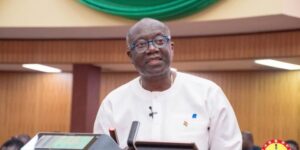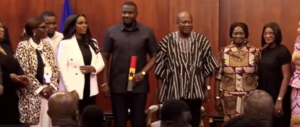The subject of women’s active inclusivity at higher-level decision-making in society has gained prominence in national discourse recently.
In the last couple of weeks, discussions intensified after Dr. Mahamudu Bawumia released the list of his campaign and manifesto teams, revealing a disproportionately low number of female considerations.
It is critical that the conversation is holistically considered to advance national progress.
Establishing the bases for appreciable female representation is a broad task, but simplicity is key for the purpose of this article.
How many women have failed in history when given the chance at sensitive positions in human affairs? And why advocate female empowerment if their potential is underutilised for transformative development? The marginalisation of females was aligned with ancient cultural and religious philosophies that excluded females, even in decisions affecting them directly. That era should be in history with the advent of democracy and feminist emancipation.
In enhancing the course of our democracy, we should be obligated to learn best practices from advanced democracies globally.
The concept of affirmative action has become a contemporary feature of democracy fully embraced in international leadership dynamics to ensure women’s utmost contributions to societal development.
In the United States of America, for instance, President Joe Biden’s cabinet comprises eight (8) out of twenty-one (21) secretaries, representing thirty-eight point one percent (38.1%).
Currently, Prime Minister Rishi Sunak of Britain works with thirty-one percent (31%) women in his cabinet after initial public criticisms with seven (7) out of thirty-one (31) members, representing twenty-one percent (21%).
While there could be disappointments in voting patterns, disfavouring women, it behooves appointing authorities to consider adequate women in their appointments.
In our backyard in Africa,
Rwanda has sixty-one point three percent (61.3%) women in parliament and fifty percent (50%) in the cabinet, leading globally.
Namibia follows with forty-six point two percent (46.2%) women parliamentarians and thirty percent (30%) in the cabinet.
Republic of South Africa’s parliament is made up of forty-two point seven percent (42.7%) woman and forty percent (40%) in the cabinet.
Forty-one point eight percent (41.8%) of Senegalese women are in their parliament while forty percent (40%) of them are in the cabinet.
Mozambique, counted among African nations doing well with women empowerment, has thirty-nine point six percent (39.6%) women in parliamentary composition and thirty percent (30%) in the cabinet.
While the above countries are doing well with female representation, Ghana lags behind with fourteen point five, five percent (14.55%) women in parliament and ten percent (10%) in the cabinet. This does not resonate with our claim as the bastion of democracy in Africa.
The call for a female running mate to Dr. Mahamudu Bawumia is pertinent, given the New Patriotic Party’s (NPP’s) abundance of experienced women with unquestionable disposition, resourcefulness, and strong connections to contribute significantly to governance and societal growth and development.
Dr Kwaku Adams
Associate Professor of International Business
University of Huddersfield, UK






